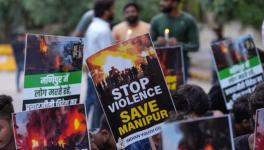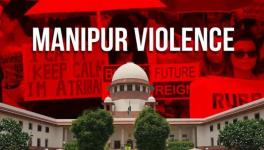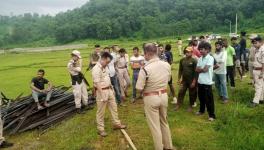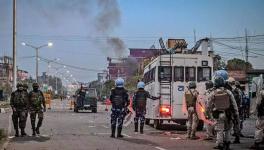Army Court Martial in Assam Sentences 7 to Life Imprisonment
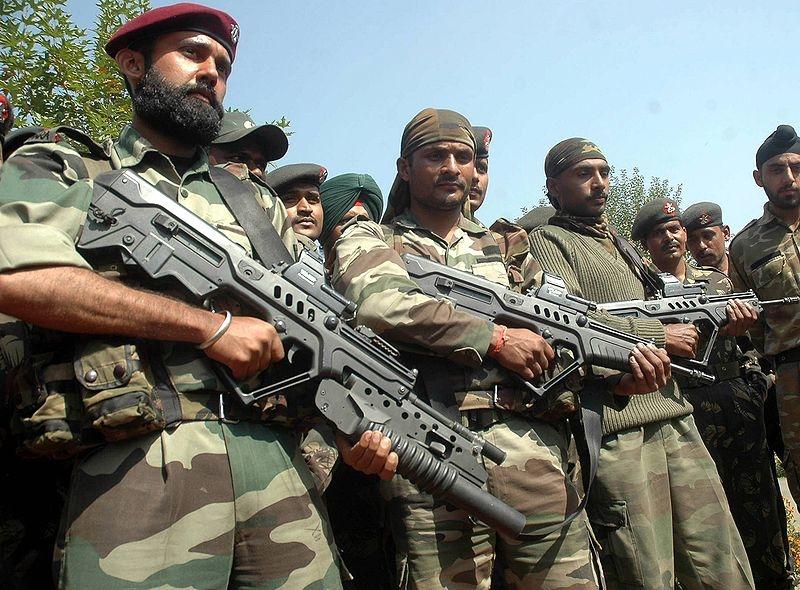
Indian Para Commandos | Image Credit: Wikipedia Creative Commons
An Army Court Martial has sentenced seven Army personnel to life imprisonment for the 1994 Dangari fake encounter in Tinsukia, Assam. Major General AK Lal, Colonels Thomas Matthew and RS Sibiren, Captains Dilip Singh and Jagdeo Singh, and Naiks Albinder Singh and Shivender Singh were convicted in the Court Martial. The decision of the Court Martial, though delayed, is welcome. However, the timing of the decision is worth pondering over.
The extrajudicial killings occurred in 1994 after Rameshwar Singh, the general manager of Assam Frontier Tea Limited was gunned down by members of the United Liberation Front of Assam (ULFA) in Talap Tea Estate. Members of the 18 Punjab Regiment based in Dhola picked up nine youths subsequently from different locations around the tea estate.
Jagdish Bhuyan, who was associated with both AASU as well as the Asom Gana Parishad, informed the police about the young men’s detention by the army. Bhuyan then filed a habeas corpus petition in the Guwahati High Court. The army produced four of those detained at different locations in the state. The remaining five were taken by boat to the Dibru Saikhowa National Park, and were shot dead. The army claimed that they had shot ULFA extremists; the police, however, stated that the post-mortem report noted signs of torture – gouged out eyes, slashed tongues, smashed knee caps and signs of electrocution.
Also Read | Government Chooses to Stay Quiet as the Number of “Fake Encounters” Keeps Increasing in Manipur
The Hindu reported that one of the survivors opined that the five had been killed since their bodies bore signs of more severe torture than the other four. Hence, the army wanted to ‘dispose’ of the evidence.
The timing of the decision is interesting since the army has come under fire of late for excesses committed during counter-insurgency operations. A Bench of the Supreme Court of India comprising Justice Madan B Lokur and Justice UU Lalit have ordered a Central Bureau of Investigation (CBI) inquiry into extrajudicial executions committed by the security forces – paramilitary and army personnel – in Manipur.
The Supreme Court recognised the gravity of the matter in its Judgement on July 14, 2017, and appointed retired Supreme Court Judge Justice Santosh Hegde to review over 1,500 cases of alleged fake encounters. The Justice Hegde Commission submitted its report finding that out of the cases they had picked at random, they concluded that all of them required a proper investigation The findings resulted in the Supreme Court directing the CBI to investigate and file charge-sheets.
Despite dragging its feet, the CBI finally filed around 31 chargesheets against armed forces and Manipur police personnel by August 29, 2018. However, by then, certain new developments had taken place. The situation in Jammu and Kashmir had been steadily deteriorating since 2016. In the course of the rising levels of civil disobedience and violence, on January 27 this year, the 10 Garhwal Rifles opened fire in Shopian district in Jammu and Kashmir, in which three young men were killed. The Jammu and Kashmir police filed a first information report (FIR) against Major Aditya Kumar, as he was the concerned commanding officer. This prompted one of the strangest and perhaps most dangerous petitions to be filed in the Supreme Court.
The accused Major Aditya Kumar’s father, Lieutenant Colonel Karamveer Singh filed a petition in the Supreme Court seeking to quash the FIR. His petition has been supported by the union government. The crux of the petition is to interpret section 7 of the Armed Forces (Special Powers) Act (AFSPA) in all its avatars – each ‘disturbed area’ has a separate AFSPA, though the text is the same – to mean that investigation also comes within the ambit of ‘other legal proceeding’.
Section 7 states: “[N]o prosecution, suit or other legal proceeding shall be instituted, except with the previous sanction of the Central Government, against any person in respect of anything done or purported to be done in exercise of the powers conferred by this Act.” Hence, sanction would have to be sought even before an investigation can start.
Also Read | AFSPA: Contradictions in Assam
As this matter had been admitted by the Supreme Court, and the CBI’s noose tightened on the trigger-happy officers, they pushed to implead themselves in Lieutenant Colonel Karamveer Singh’s petition. At present, around 700 officers – whether connected to counter-insurgency operations or not – are impleaded.
Though the Chief of Army Staff, General Bipin Rawat, has made clear his displeasure that the officers are approaching the Supreme Court; this may in reality be due to the fear that the officers could lose the case. In this case, the Supreme Court may end up passing Orders that would regulate AFSPA’s operation.
Against this backdrop, though a welcome decision, the Army Court Martial may just be an attempt to portray the Army as a professional and disciplined institution, despite a plethora of unpunished wrongs. It may just be a vain hope that the Court Martial decision will influence how the Supreme Court will approach matters concerned with AFSPA.
Get the latest reports & analysis with people's perspective on Protests, movements & deep analytical videos, discussions of the current affairs in your Telegram app. Subscribe to NewsClick's Telegram channel & get Real-Time updates on stories, as they get published on our website.










